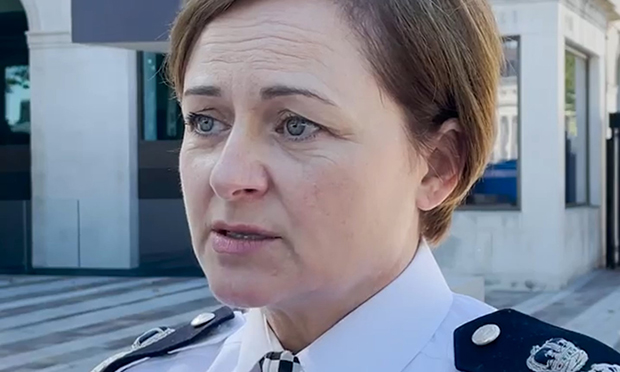Child Q: Metropolitan Police ‘taking racism claim very seriously’, says assistant commissioner

The Assistant Metropolitan Police Commissioner has said the force “take[s] very seriously” the claim that racism played a role in the strip-search of a Black schoolgirl in Hackney.
Louisa Rolfe, who has been tipped as a potential candidate to replace Cressida Dick as Met Commissioner, told a meeting of the London Assembly’s police and crime committee on Wednesday that the Met has accepted the findings of a safeguarding review and takes seriously issues of “inappropriate adultification of Black children” and “what that might mean in policing”.
Jim Gamble, the Independent Child Safeguarding Commissioner for Hackney, concluded in a safeguarding review that racism “was likely to have been an influencing factor” in the decision of officers to strip-search a 15-year-old Black girl at her school.
Hundreds of people gathered in London last weekend to show support for the girl known only as Child Q and to demand an end to policing in schools.
Speaking at the newly opened City Hall building on Wednesday, Lousia Rolfe said that the Met is “shocked and saddened” by the incident, adding that “it should never have happened”.
The Assistant Commissioner said that the Met must ensure officers are “culturally aware and competent” and that this must be addressed by “building stronger relationships with our communities and being very open with our data about the use of coercive powers”.
Rolfe went on to explain that it was “unusual” for officers to respond to incidents in schools and that it is normally the job of specially trained schools officers to intervene in situations such as the one experienced by Child Q.
She said: “We like our schools officers to develop close relationships working with schools to address any concerns, but it would be unusual for response officers to be called to a school to deal with an incident of this nature.
“The safeguarding review is very clear that safeguarding should take precedence and that partners should work together and – policing has a role in safeguarding – but that we should work together to address these matters.
“First and foremost, that would normally be through schools officers who have a higher level of training in safeguarding and higher levels of awareness, but also, a close relationship with schools and pupils to understand their responsibilities and how we support safeguarding in an education environment.”
According to Met data, there were 357 designated schools officers in the 2019/20 school term, up from 294 in 2016/20. The Met received 56 complaints relating to schools officers in 2019 and 48 complaints in 2020.
The nature of complaints ranged from impoliteness and unprofessional attitudes to assault and harassment.
The Met was forced to review the role of its officers in schools in 2020 due to a legal challenge which raised concerns that they were disproportionately targeting Black and minority ethnic pupils.
Following the revelations about Child Q, Rolfe told Assembly Members that the Met has “refreshed” the information it gives officers and that it has “reinforced” the policy that an appropriate adult must be present when police are searching a child under the age of 18.
